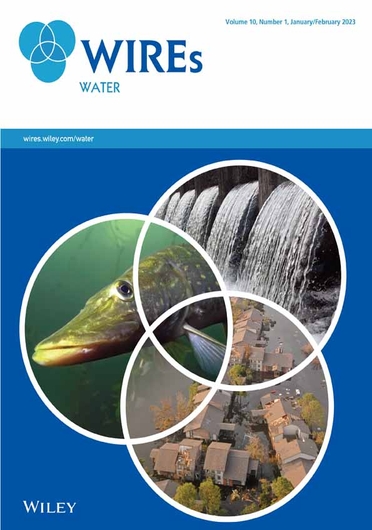Beyond engagement: Enhancing equity in collaborative water governance
IF 5.8
1区 地球科学
Q1 ENVIRONMENTAL SCIENCES
引用次数: 0
Abstract
Collaborative governance has emerged as a promising approach for addressing complex water sustainability issues, with purported benefits from enhanced democracy to improved environmental outcomes. Collaborative processes are often assumed to be inherently more equitable than traditional governance approaches due to their goal of engaging diverse actors in the development of policy and management solutions. However, when collaborative water governance processes ignore issues of politics and power in their design, they risk creating or even exacerbating existing inequities. How, then, can collaborative water governance processes be designed to enhance, rather than undermine, equity? To answer this question, we first conduct an extensive review of the collaborative governance literature to identify common design features of collaborative processes, which each present potential benefits and challenges for actualizing equitable collaborative water governance. After critically discussing these design features, we explore how they are executed through two case studies of collaborative water governance in western North America: groundwater governance reform in California and transnational Colorado River Delta governance. In reflecting on these cases, we chart an agenda for future collaborative water governance research and practice that moves beyond engaging diverse actors to promoting equity among them.This article is categorized under: Human Water > Water Governance Science of Water > Water and Environmental Change Engineering Water > Planning Water超越参与:加强水资源合作治理的公平性
合作治理已成为解决复杂的水可持续性问题的一种很有前途的方法,据称可以从加强民主到改善环境成果中获益。由于协作过程的目标是让不同的行动者参与制定政策和管理解决方案,因此通常认为协作过程本质上比传统的治理方法更公平。然而,当合作水治理过程在设计中忽视政治和权力问题时,就有可能造成甚至加剧现有的不平等。那么,如何设计合作的水治理过程来增强而不是破坏公平?为了回答这个问题,我们首先对合作治理文献进行了广泛的审查,以确定合作过程的共同设计特征,这些特征都为实现公平的合作水治理带来了潜在的好处和挑战。在批判性地讨论了这些设计特征后,我们通过北美西部合作水治理的两个案例研究来探索它们是如何执行的:加利福尼亚州的地下水治理改革和科罗拉多河三角洲的跨国治理。在反思这些案例时,我们为未来的水治理合作研究和实践制定了一个议程,该议程超越了让不同行为者参与进来,而是促进他们之间的公平。本文分类如下:人类用水>水治理水科学>水与环境变化工程用水>规划用水
本文章由计算机程序翻译,如有差异,请以英文原文为准。
求助全文
约1分钟内获得全文
求助全文
来源期刊

Wiley Interdisciplinary Reviews: Water
Environmental Science-Ecology
CiteScore
16.60
自引率
3.70%
发文量
56
期刊介绍:
The WIREs series is truly unique, blending the best aspects of encyclopedic reference works and review journals into a dynamic online format. These remarkable resources foster a research culture that transcends disciplinary boundaries, all while upholding the utmost scientific and presentation excellence. However, they go beyond traditional publications and are, in essence, ever-evolving databases of the latest cutting-edge reviews.
 求助内容:
求助内容: 应助结果提醒方式:
应助结果提醒方式:


